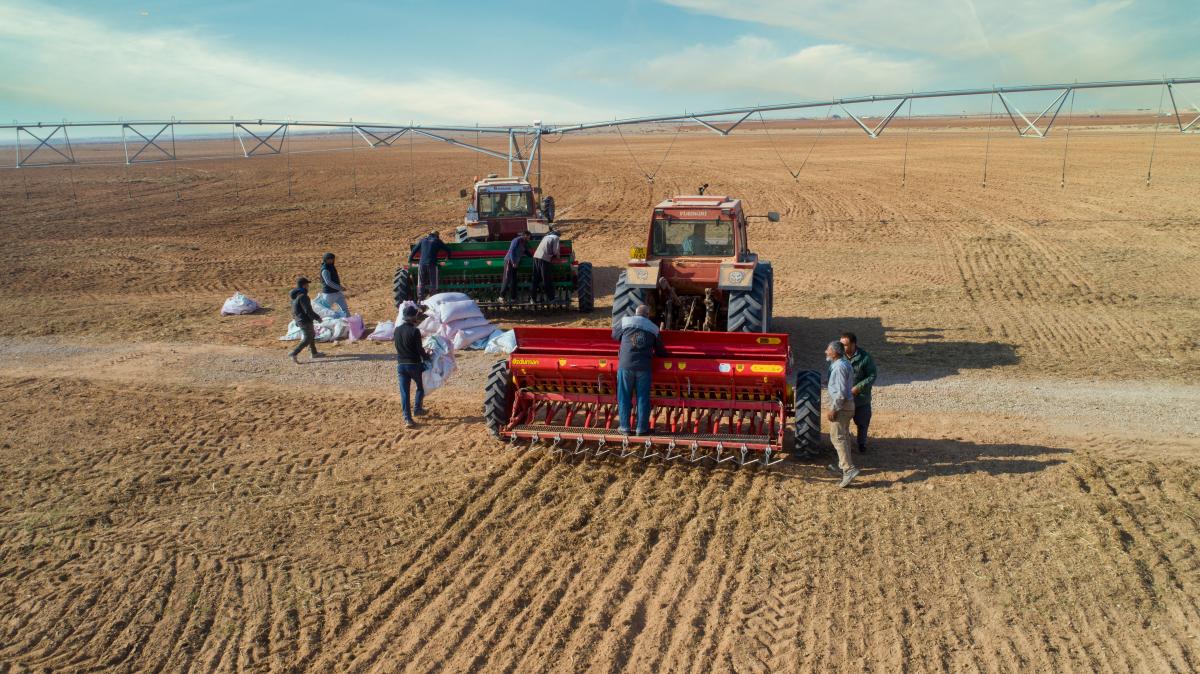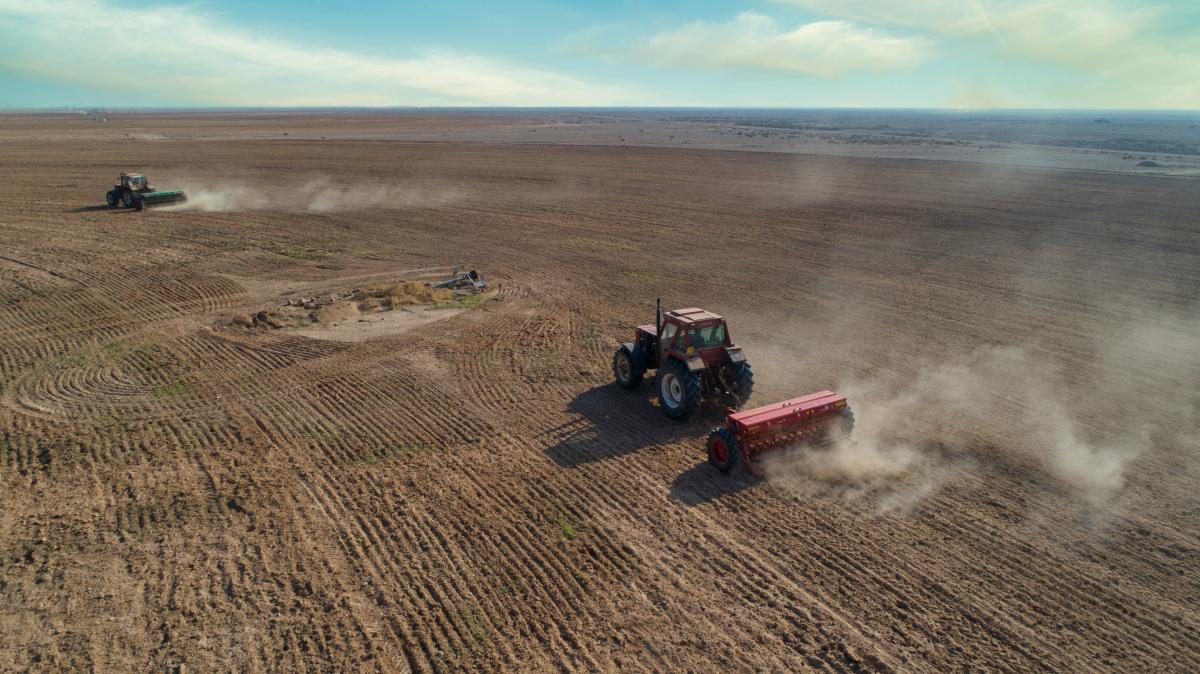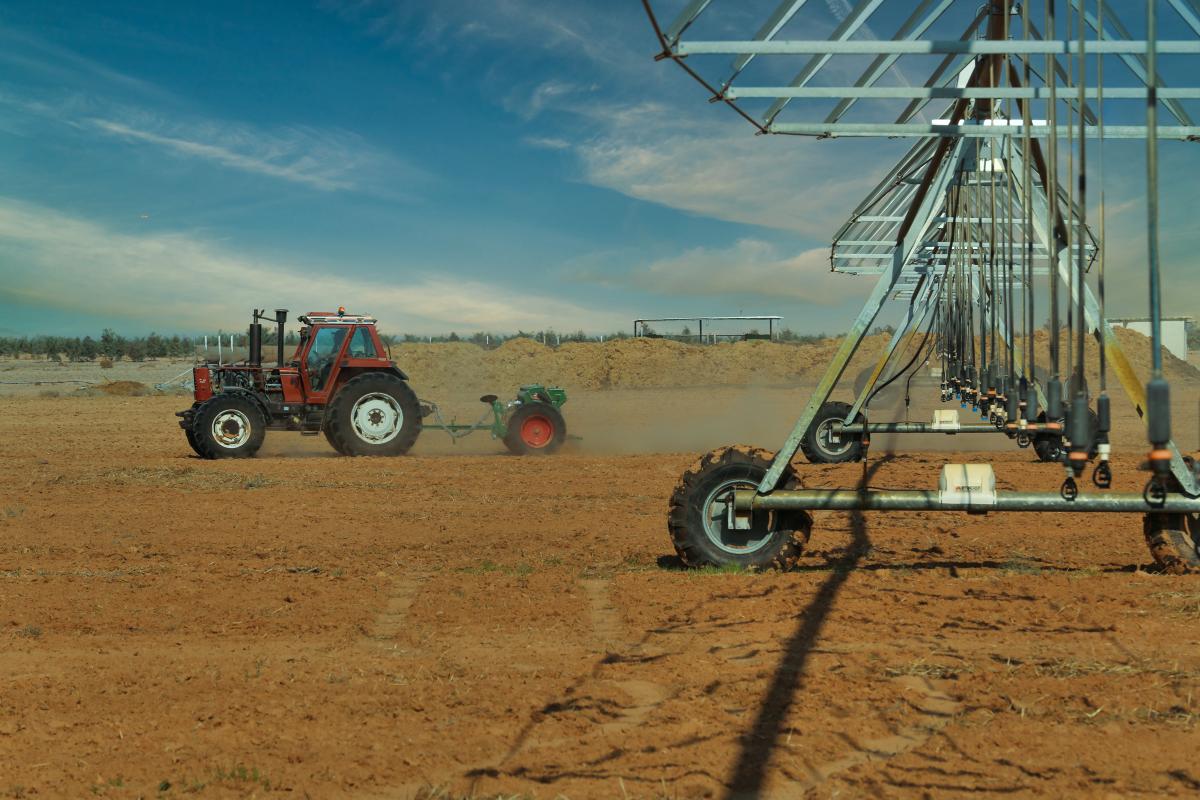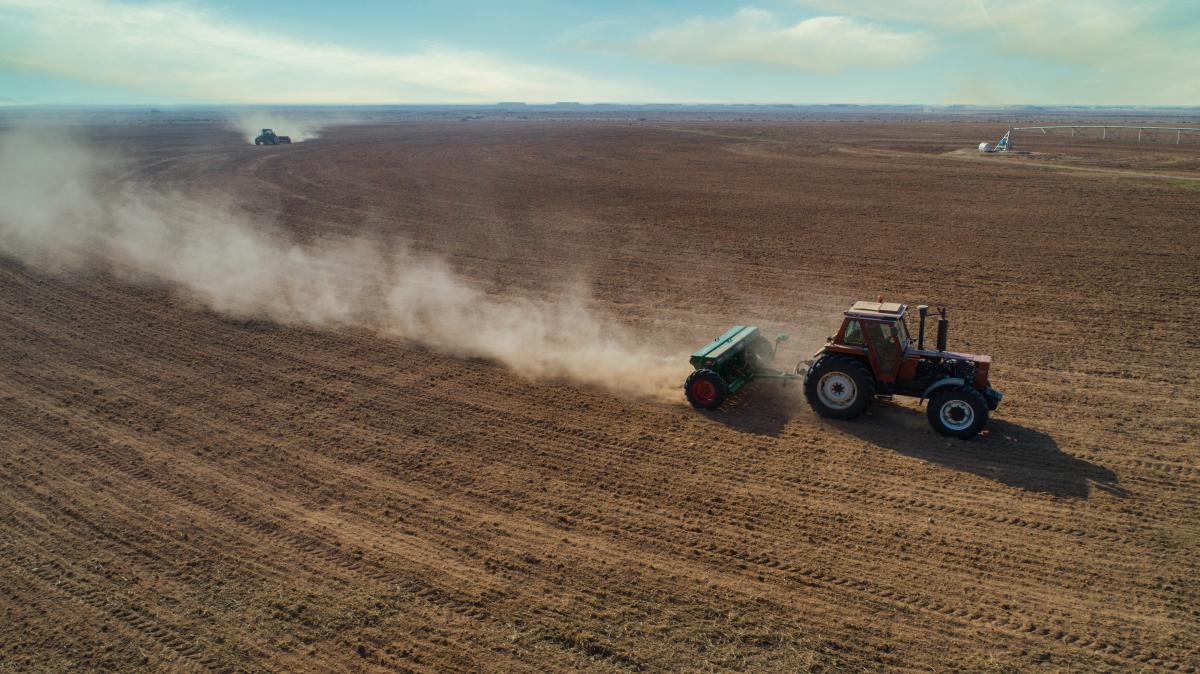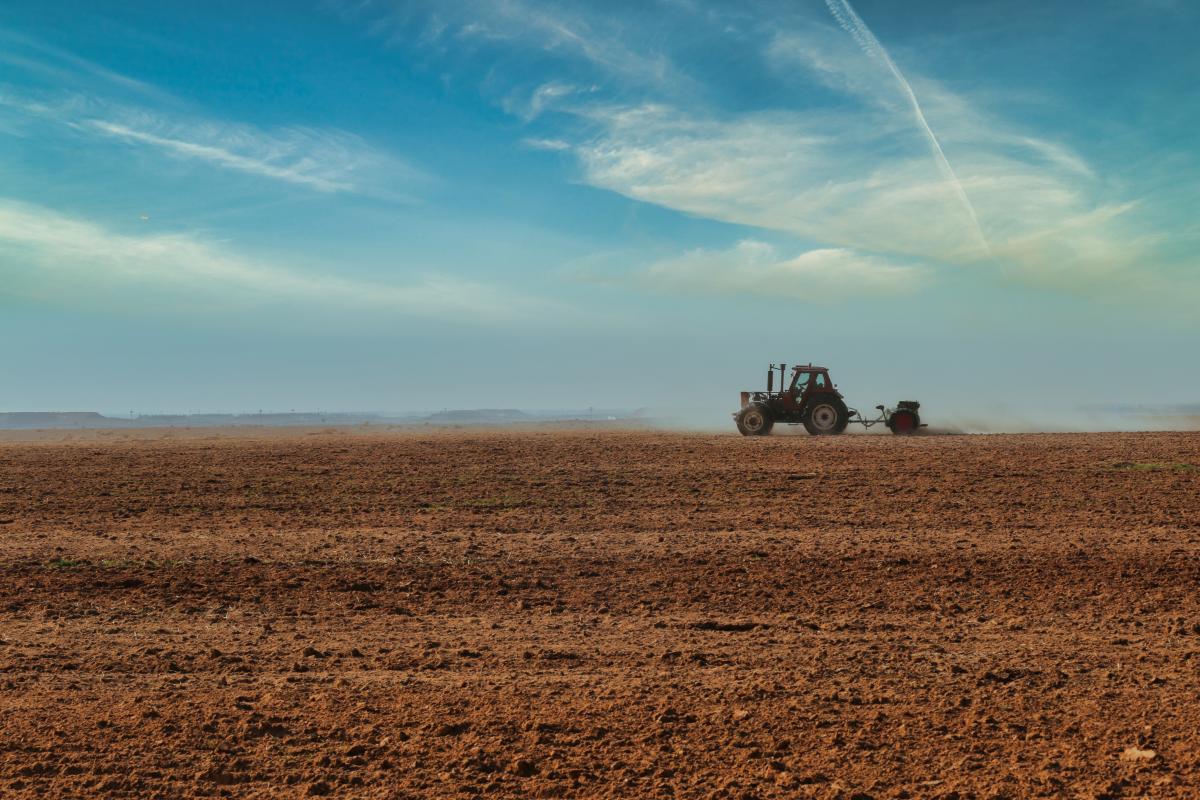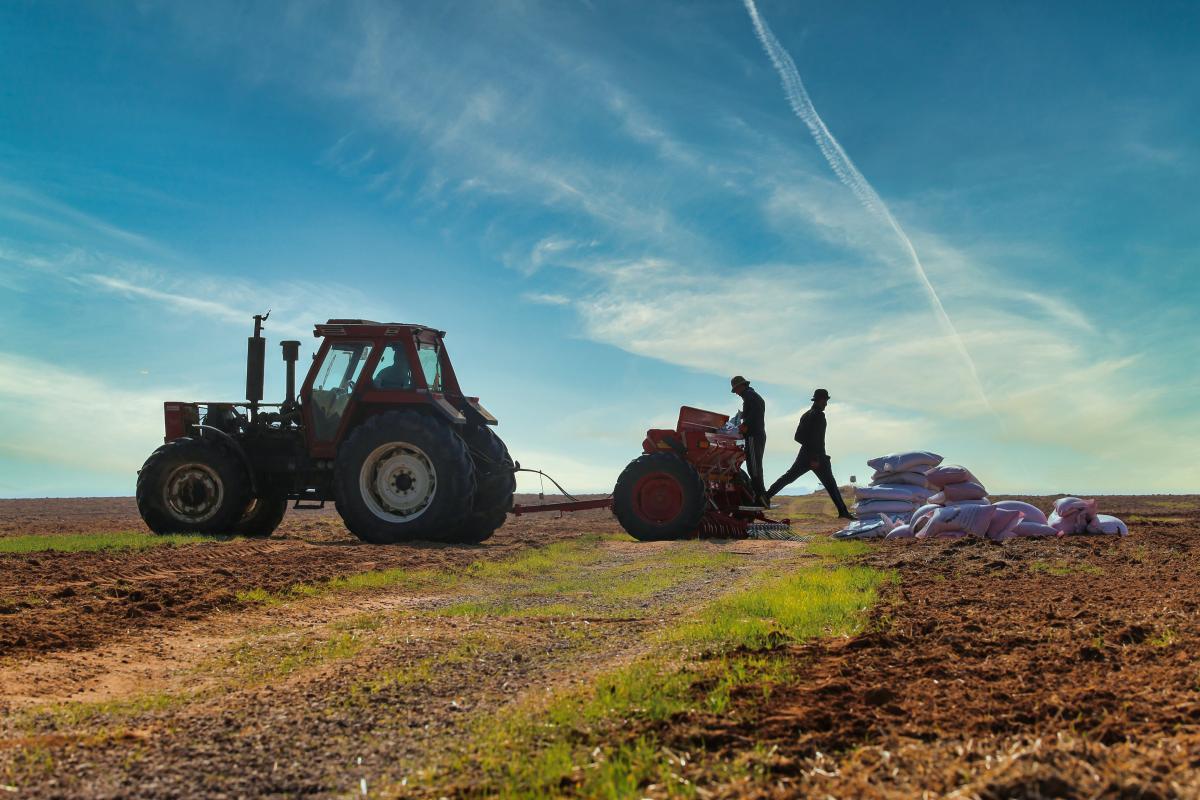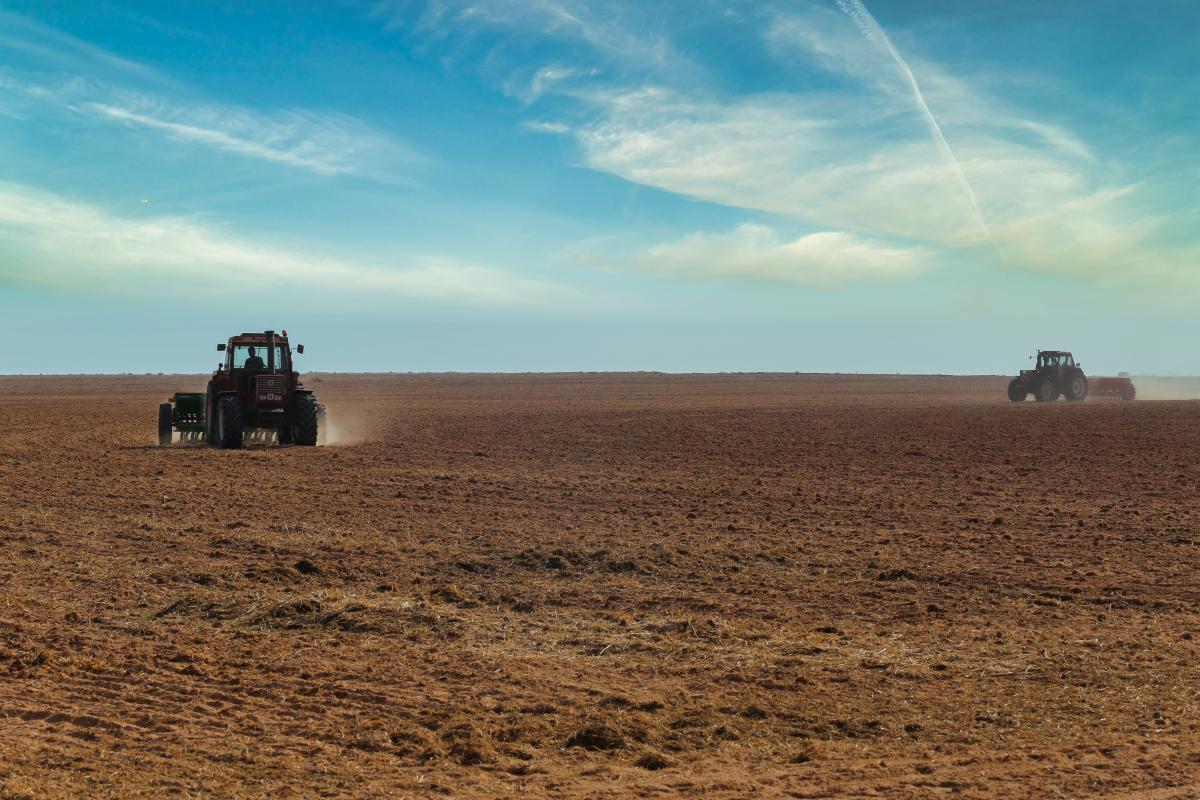The cadres working in the "Saqi" agricultural project of the al-Abbas's (P) holy shrine began to cultivate the high-grade wheat crop on an area estimated at (1000) dunums*, within the specified area of the project, and by following modern and sophisticated methods that ensure the growth of the crop correctly.
The head of the engineering projects department at the al-Abbas's (p) holy shrine, Eng. Dea' Majeed Al-Sa'egh, explained to Al-Kafeel Network, that “The preparations for the winter planting season have been completed not long ago, and they included preparing the land and removing last year's residues, in addition to conducting a comprehensive maintenance of all 11 central irrigation sprinklers; (8) for an area of (80 dunums*) and (3) for an area of (120 dunums*)."
"The crop was cultivated mechanically by following modern and sophisticated methods, which we hope, God willing, will achieve what we aspire for in terms of production and quality," Al-Sa'egh added.
The project site manager, Mr. Zaki Sahib, explained: “The (1000) dunums* area that we started cultivating of the high-grade wheat crop. (5) tons were cultivated per dunum*. In addition to (6-7) tons of fertilizer for each sprinkler," noting that the cultivated area for this year has witnessed a clear development and expansion by providing it with two additional sprinklers, which is part of the strategic plan of the holy shrine aimed at covering larger areas of agricultural land."
It is noteworthy that the Saqi project is one of the strategic projects through which the al-Abbas's (p) Holy Shrine seeks to invest desert lands in Karbala Governorate, and to cultivate them with strategic agricultural crops, including wheat, in a way that contributes to achieving self-sufficiency.
* In Iraq, the dunum is 2,500 square metres (0.25 ha).

